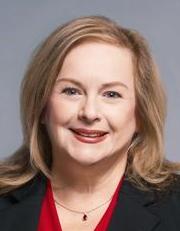Caring for the Underserved Certificate
The Caring for the Underserved Certificate empowers pharmacists and nurse practitioners to support underserved populations and make an impact on community health.
Offered by the University of Cincinnati's colleges of nursing and pharmacy, the certificate provides students in PharmD and advanced-practice nursing degree programs the opportunity to focus their required coursework and real-world experiences on mastering the skills needed to provide quality, equitable and culturally competent care to underserved populations through:
- Team-based interprofessional coursework
- Mentorship from faculty who work with underserved populations
- Experiential learning with community partners who serve underserved populations
Meet our Students
Meet our first cohort of Caring for the Underserved Certificate program students, which includes two UC nursing and three pharmacy students.
Curriculum
Students complete a minimum of 11 credit hours through a combination of online elective courses and experiential learning. The certificate shows on a student's official transcript and does not require additional credit hours beyond degree requirements for a PharmD, Master of Science in Nursing (MSN) or Doctor of Nursing Practice (DNP).
| Course No. |
Course Title |
Credits |
|---|---|---|
| NURS 7002 | Health Issues of Vulnerable & Marginalized Populations | 3 |
| PHRX 7099 |
Health Care, Public Health and the Underserved |
2 |
| PHRX 9041/ NURS 8099 |
Clinical Pharmacy Project I (Pharmacy) or Capstone (Nursing) | 1-2 |
| Professional Experience | Rotation/clinical experience in an organization that serves underserved populations | 4-8 |
Application & Admissions Process
| Application Opens | Application Due | Personal Interviews | Admission Decision |
|---|---|---|---|
| May | June | TBD | TBD |
Students apply through the UC Graduate School. The application and admissions process requires:
- A current resume or curriculum vitae (CV) with program GPA
- Letter of intent
- One-page essay that answers one of the following questions: How will the skills obtained through this certificate program benefit your professional career? Or what skills do you hope to obtain by completing this certificate program?
- Short paragraph (500 words or fewer) that describes adversity that the applicant has overcome in the past.
- Letter of recommendation from an individual who can speak to the applicant's character and desire to help those less fortunate (e.g. a manager, volunteer coordinator or spiritual leader)
- Personal interview
Note: Though the application gives the option to record a personal video statement, video submissions will not be considered.
Frequently Asked Questions
UC College of Pharmacy students in PY2 or PY3 of the PharmD program or UC College of Nursing students in a community-focused advanced-practice specialty program, i.e. an MSN or DNP in adult-gerontology primary care, family nurse practitioner, nurse midwifery or women’s health. Note: PharmD students must apply in PY2 to start in PY3 in order to complete their degree on time.
For students in the College of Pharmacy the certificate fits within students' program of study and does not require additional credit hours to complete. For students in the College of Nursing, it depends on the graduate degree program in which students are enrolled. Nursing students should talk to an advisor to find out whether the certificate would add additional credit hours and time to their degree.
Applicants must pay a $25 fee to submit their application through the UC Graduate School. For College of Pharmacy students, the program does not add to tuition totals. For College of Nursing students, it depends on the graduate-degree program in which a student is enrolled. Nursing students should talk to an advisor to confirm how much the program would add to their tuition.
The College of Pharmacy and College of Nursing have longstanding relationships with primary care sites in the Greater Cincinnati region where students can complete their practicum or rotation. Alternatively, these experiences could be integrated into practica or rotations already in progress. Faculty will work individually with students to assess these opportunities.
More Information
For more information, nursing students should contact Rebecca Lee.

Rebecca C. Lee
Assoc Professor, CON Office of Research & PhD Education
212 Procter Hall